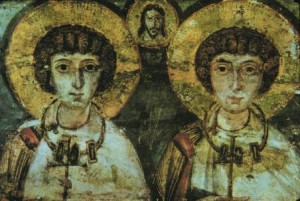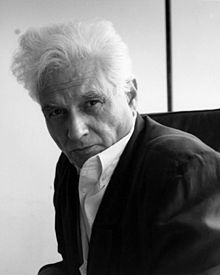In times of great tragedy there are so many questions. The greatest of these questions is “why?” Man is a rational animal, and as such, he refuses to live in a world in which things don’t make sense. He refuses to believe that he resides in a universe which is indiscernible and not logical. And yet, he is faced with events so horrendous that he can find no understanding in them. He sees a tragedy, a true tragedy, and knows that there must be some reason behind it. But does he ever find it?
Does he find meaning in the statistical analysis? Would a frame by frame description of every moment of the tragedy give him solace? Does he find it in the speeches of politicians? Does he find meaning in the media coverage? Perhaps, they all say, we could understand, if only we could talk to the killer. But even this isn’t true. A man could spend his whole life interviewing the Charles Mansons of the world and never get any closer to understanding the meaning. This is the Absurd, that man has so much desire to know, and yet can never know, why the innocent suffer.
In his post earlier today Marc Barnes examined our national response to the tragedy in Newtown, and suggested that in response to this, and other horrible events, one has three options: suicide, living against the absurdity, and the leap of faith. However, there are many who are uncomfortable with these options.
Understandably no one likes the idea of suicide, even if it is, in the strict sense, the logical thing to do.
What then of the other two options? Why does everyone seem so uncomfortable with the others? The discomfort of the rational man at the prospect of the leap of faith is clear, and understandable. He sees it as being, as Camus put it, equal to philosophical suicide, that is to say, that he sees giving up on this world to live for the next is the same as simply giving up on this world.
So, what option do we have left? Absurdism.
To be an Absurdist is to take on the full responsibility of the freedom you have in the face of the absurdity of life, and to struggle, at every moment against it. This is however, a very unpopular view. No one wants to be completely responsible for their lives, we like to make like the nihilists in Dostoevsky’s The Idiot and claim what is “rightfully ours,” to demand that we be treated better by the universe, and when we’re not, claim that it’s some one, or something, else’s fault. This is the in-authenticity that French Existentialist Jean-Paul Sartre railed against. When we see people so afraid of taking responsibility in the face of the absurdity, we know exactly what he meant by saying that people flee from their own freedom. It nauseates us to think that we can act, even in the midst of such tragedy.
If one considers the key question of Camus’ book The Plague, it may be understood why this seems so terrifying to the rational man. Why be a healer in the midst of the absurd? The solution to this problem, as Camus puts it, is simple, because you can’t accept it.
But this is the call of the Christian as well. In fact, were we to be honest, both Christians and Absurdists, we would see that we are, in our truest forms, not so different. You see, Camus tells us that we have to do what we know is good, we have to struggle against the suffering, the pain, and the apparent uselessness of it all without the consolation of “knowing” that our efforts will mean anything. This is exactly what it means to be a Christian. The only difference is that we believe that Christ also struggled in this same struggle against this same absurd adversary. To take the leap is not to do away with, in one swoop, the problem of the absurd by a single profession of belief, but rather to wake every day and take it upon yourself to live fully in the grace of God. Thus, we may see that the leap is not a suicide, but rather a choice to live against the absurd. It is as much a burden, and as much taken on freely, as that of the Absurdist. Camus could have espoused a Christian philosophy, if only he could believe that God too had suffered.
And it is in this that man may finally find his “why,” not in a definite knowledge of meaning, but in the faith that God too has suffered, and by this suffering there may be meaning and grace in the Absurd.














